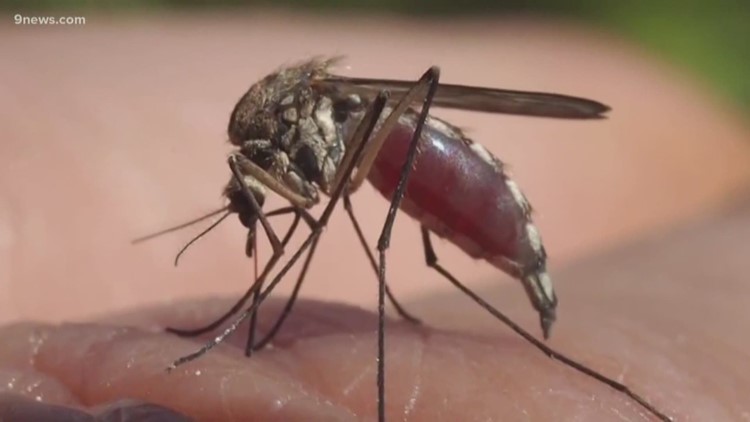WELD COUNTY, Colo. — Mosquitoes collected from three different sites in Weld County tested positive for the West Nile Virus(WNV), according to the Weld County Health Department (WCHD).
They were collected on Aug. 3 and Aug. 10 from Zone 2 (Johnstown, Milliken, Platteville areas) as part of the county's WNV surveillance program.
The first instance of WNV in Weld County was found in traps on the east side of the Town of Berthoud during the week of July 27, 2020. The identification of positive WNV mosquitoes is slightly delayed, as the state lab is also meeting the demands of COVID-19 testing.
WCHD uses a contractor to conduct mosquito trapping in three zones in Weld County: the Greeley/Evans area (Zone 1), the Johnstown/Milliken/Platteville area (Zone 2), and the Fort Lupton/Dacono/Firestone area (Zone3).
“Finding WNV positive mosquitoes is no surprise for this time of year, with the hotter temperatures we’ve had in July and August,” said Dan Joseph, Environmental Health Services Division Director. “We are also seeing above average number of Culex mosquitoes(the mosquitoes known to transmit WNV) for the first time this summer.”
There are currently no human cases of WNV in Weld County and only one in all of Colorado. Last year, there were a total of nine human cases in Weld County.
West Nile virus symptoms can appear three to 14 days after infection. Initial symptoms can include fever, headache, nausea and vomiting, muscle aches and weakness and rash, but most infected people don’t exhibit any symptoms.
If a person develops symptoms, they should see a doctor immediately. There are no medications to treat or vaccines to prevent WNV infection, and less than one percent of infected people develop a serious, sometimes fatal, neurological illness.
Health officials recommend following the four “D’s” to prevent mosquito bites:
DRAIN standing water around your house weekly. Remember to drain water from tires, cans, flowerpots, clogged rain gutters, rain barrels, toys and puddles.
DUSK and DAWN are when mosquitoes are most active. Limit outdoor activities and take precautions to prevent mosquito bites during these times.
DEET is an effective ingredient to look for in insect repellents. Always follow label instructions carefully.
DRESS in long sleeves and pants in areas where mosquitoes are active.
SUGGESTED VIDEOS: Local stories from 9NEWS



